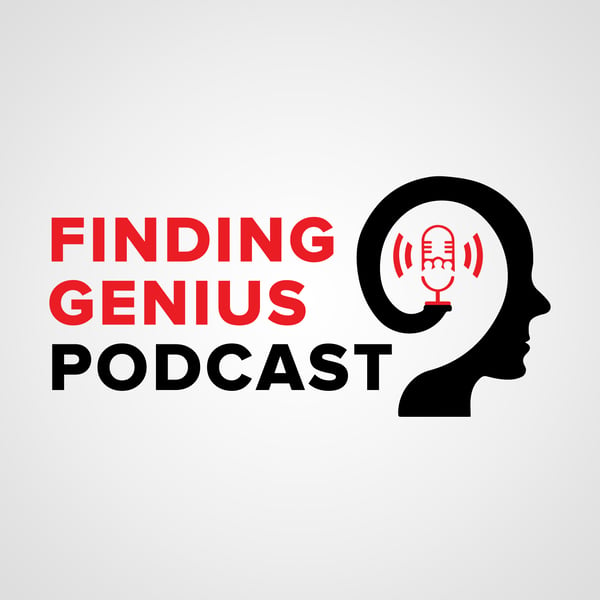Searching for Alzheimer’s Biomarkers: David Wishart Describes Foundational Research
Finding Genius Podcast
Richard Jacobs
4.4 • 1K Ratings
🗓️ 5 May 2021
⏱️ 31 minutes
🧾️ Download transcript
Summary
How do doctors measure your liver function, kidney function, cholesterol levels, and heart disease? They use biomarkers, and David Wishart helps identify biomarkers with analytical chemistry, mass spectrometry, and other bioinformatics tools. He and his colleagues look at blood or urine and other biological fluids to help in the diagnosis and characterization of human diseases.
He explains
- What characterizes a useful and reliable biomarker and how low false positive rates distinguish them,
- How the receiver operating characteristic (ROC) curve works and where common tests fall in the curve,
- What’s the history of biomarker testing and how it’s been improved, and
- How he’s meeting the challenging task of identifying Alzheimer’s biomarkers in his research.
David Wishart is a professor in the Departments of Biological Sciences and Computing Science at the University of Alberta. He works with bioinformatics software, nanobiology, and machine learning in healthcare to fine tune the use of biomarkers in diagnostics.
He explains that historically, most biomarkers have been proteins. But developments in identifying cancer biomarkers, for example, have focused on metabolomics. “Cancer is very much a metabolic disorder,” he explains, “and some of the very first changes that happen in cancer are fundamental changes in metabolism.” Furthermore, tests can be combined, like a “gene test with a protein test with a chemical test,” and that improves sensitivity and the chances of catching a cancer earlier.
Neurodegenerative diseases pose a particular challenge, he explains. An Alzheimer’s biomarker is hard to identify because the consequences of the disease and causes are not always clear. Researchers are even pointing to microbiome connections and brain metabolism. Therefore, it may actually be a gut microbiome test that indicates Alzheimer’s. He adds, “we're finding, for instance, bile acids in the brains of Alzheimer's patients.”
He describes what other chemicals they’re finding and how this research might lead to better understandings of its pathogenesis and how earlier testing and prevention might be possible.
Episode also available on Apple Podcasts: apple.co/30PvU9C
Transcript
Click on a timestamp to play from that location
| 0:00.0 | Forget frequently asked questions. |
| 0:02.0 | Common sense, common knowledge, or Google. |
| 0:05.0 | How about advice from a real genius? |
| 0:07.0 | 95% of people in any profession are good enough to be qualified in license. |
| 0:11.0 | 5%? |
| 0:12.0 | Go above and beyond. |
| 0:13.0 | They become very good at what they do. |
| 0:15.0 | But only 0.1% are real geniuses. |
| 0:18.0 | Richard Jacobs has made his life's mission to find them for you. |
| 0:22.0 | He hunts down and interviews geniuses in every field. |
| 0:25.0 | Sleep science, cancer, stem cells, ketogenic diets, and more. |
| 0:29.0 | Come the geniuses. |
| 0:30.0 | This is the Finding Genius Podcast. |
| 0:33.0 | The Richard Jacobs. |
| 0:36.0 | Quick note before we begin. |
| 0:39.0 | The Finding Genius Foundation, as part of the Finding Genius Podcast, |
| 0:42.0 | has recently completed a book about understanding viruses. |
| 0:46.0 | So the creation of this book was to interview 100 virologists, |
| 0:50.0 | ask them a lot of deep difficult questions, take the most difficult questions, |
| 0:54.0 | and then re-interview the top 25 or so, |
| 0:57.0 | and ask them the hardest questions I could think of. |
| 0:59.0 | And we compile that all into a book. |
... |
Please login to see the full transcript.
Disclaimer: The podcast and artwork embedded on this page are from Richard Jacobs, and are the property of its owner and not affiliated with or endorsed by Tapesearch.
Generated transcripts are the property of Richard Jacobs and are distributed freely under the Fair Use doctrine. Transcripts generated by Tapesearch are not guaranteed to be accurate.
Copyright © Tapesearch 2025.

